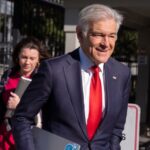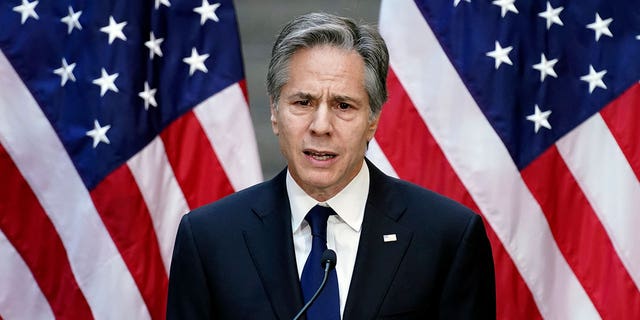
The Biden administration on Friday launched the “China House,” a new office of coordination to ensure the federal government is able to “responsibly manage” competition between the U.S. and China, which the State Department said is the “most complex and consequential geopolitical challenge we face.”
Secretary of State Antony Blinken presided over the launch of the new Office of China Coordination — informally known as “China House” — which is set to advance the Biden administration’s “vision for an open, inclusive international system.”
The State Department said the goal of the initiative is to “help deliver on elements of the administration’s approach to the PRC (People’s Republic of China).”
WHITE HOUSE SAYS US, CHINA DIPLOMATIC CHANNELS MAY ‘EXPAND’ FOLLOWING BIDEN, XI MEETING
The State Department described “China House” as a key component in Blinken’s “modernization agenda,” which is focused on ensuring the agency is prepared to meet challenges of the next decade.
“The Secretary and Department leadership are committed to ensuring we have the talent, tools, and resources to successfully execute U.S. policy and strategy towards the PRC as the most complex and consequential geopolitical challenge we face,” the State Department said Friday.
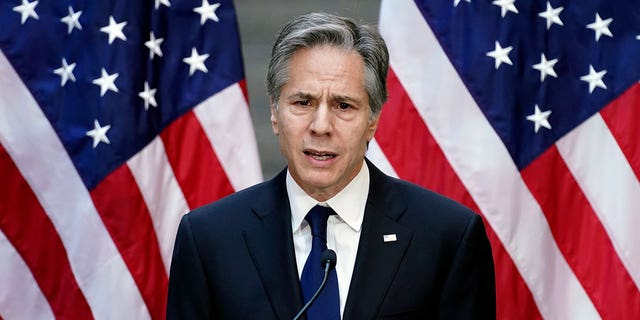
Secretary of State Antony Blinken said the new China policy office will help manage the U.S.’ most “complex” foreign relations. (Kevin Lamarque, Pool via AP)
The office will bring together China experts from throughout the State Department and security officials.
The creation of the office comes after President Biden met with Chinese President Xi Jinping at the G-20 summit last month.
“We are encouraged that diplomatic channels of communication not only will stay open, but potentially expand,” White House National Security Council strategic communications coordinator John Kirby said last week, noting that there are plans for Blinken to travel to Beijing.
Blinken said last month he will travel to China early next year to discuss bilateral issues and maintain open lines of communication following Biden and Xi’s meeting, the first time the two leaders met in person since Biden became president.
VP HARRIS, CHINA’S XI MEET TO ‘KEEP LINES OF COMMUNICATION OPEN’
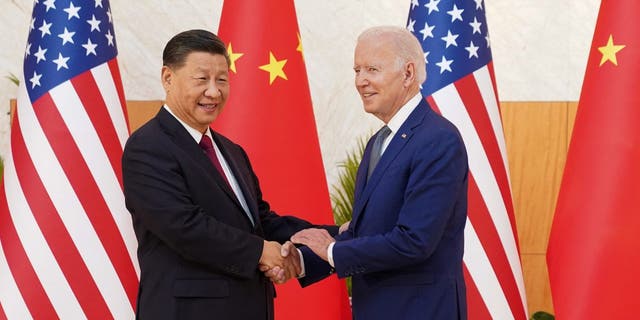
Chinese President Xi Jinping and President Biden shake hands as they meet on the sidelines of the G20 leaders’ summit in Bali, Indonesia, on Nov. 14, 2022. (REUTERS/Kevin Lamarque)
A readout from the White House after the meeting said the two “exchanged views on key regional and global challenges,” such as Russia’s aggression and threats of nuclear warfare. However, neither Beijing nor Washington made mention of whether any developments were made regarding their differences of opinion when it comes to the war in Ukraine.
China had suspended communications with the U.S. on key international issues over the summer in retaliation for the congressional delegation visit to Taiwan led by House Speaker Nancy Pelosi. At the time, the Chinese Communist Party announced it canceled all discussions of climate change, drug networks and military action with the U.S.
The meeting in Indonesia between the two leaders, while reopening communications, did not amount to a “reset” in U.S.-China relations, Kirby said last month.
US-AFRICA LEADERS SUMMIT: WASHINGTON ‘PLAYING CATCH-UP’ WITH RUSSIA AND CHINA
“There are still tensions. There are still things we do not agree with the Chinese about,” Kirby said at the time, noting that the U.S. and China need to “balance” their competing agendas.
Biden administration officials have warned of the national security threat China poses to the U.S.
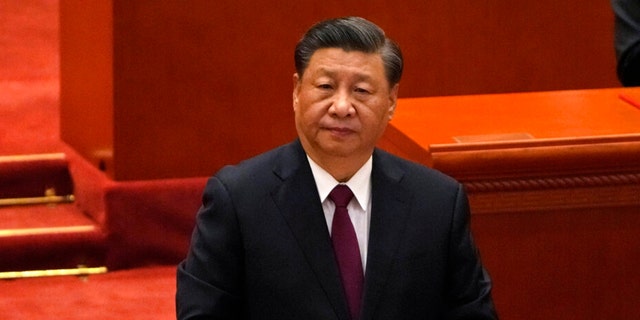
Chinese President Xi Jinping met with President Biden in Indonesia after China had suspended talks with the U.S. over Taiwan. (AP Photo/Ng Han Guan)
FBI Director Christopher Wray has said China poses “the biggest long-term threat” to U.S. economic and national security.
Intelligence community officials have warned that state and local leaders are at “risk” of being “manipulated” to support “hidden” agendas by the Chinese Communist Party as China seeks to target officials outside of Washington to lobby for Beijing-friendly policies at the federal level.
CLICK HERE TO GET THE FOX NEWS APP
CIA Director William Burns has also warned that China is “the most profound test the CIA has ever faced,” calling Beijing a “formidable competitor lacking in neither ambition nor capability.”
Last year, the CIA created the China Mission Center in order to counter Beijing and “best position” the agency to address current and future national security challenges posed by China.





